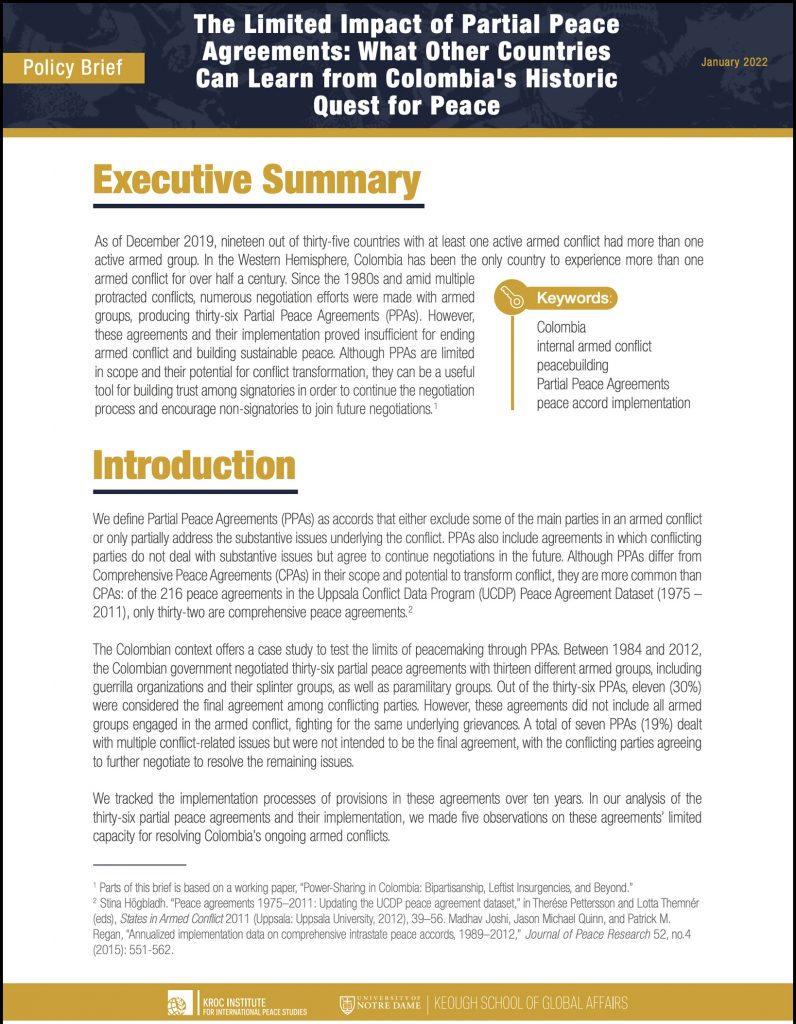The Limited Impact of Partial Peace Agreements: What Other Countries Can Learn from Colombia’s Historic Quest for Peace
Authors: Madhav Joshi, Ana Mercedes Sánchez-Ramírez
Publication info: Kroc Institute for International Peace Studies, Keough School of Global Affairs, January 2022
Full text: Read this brief at curate.nd.edu
Abstract
As of December 2019, nineteen out of thirty-five countries with at least one active armed conflict had more than one active armed group. In the Western Hemisphere, Colombia has been the only country to experience more than one armed conflict for over half a century. Since the 1980s and amid multiple protracted conflicts, numerous negotiation efforts were made with armed groups, producing thirty-six Partial Peace Agreements (PPAs). However, these agreements and their implementation proved insufficient for ending armed conflict and building sustainable peace. Although PPAs are limited in scope and their potential for conflict transformation, they can be a useful tool for building trust among signatories in order to continue the negotiation process and encourage non-signatories to join future negotiations.
Recommended citation
Joshi, Madhav, and Ana Mercedes Sánchez-Ramírez. The Limited Impact of Partial Peace Agreements: What Other Countries Can Learn from Colombia’s Historic Quest for Peace. Peace Accords Matrix Policy Brief Series. South Bend, IN: Kroc Institute for International Peace Studies, Keough School of Global Affairs, University of Notre Dame, 2022. https://doi.org/10.7274/nc580k25m5q
